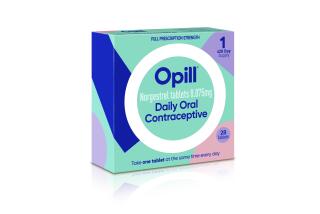Doctors Split on Usefulness of Drug Advertising
- Share via
WASHINGTON — Doctors are ambivalent about prescription-drug advertisements that have flooded the airwaves in recent years, saying they have no clear benefit for either doctors or patients, according to a government survey released Monday.
The poll of 500 doctors by the Food and Drug Administration found that while 41% of those surveyed said the ads helped the doctor-patient relationship, 59% said they did not. Thirty-seven percent said the ads had affected their practices “somewhat positively,” while 27% said they were affected “somewhat negatively.”
The disparities highlight a debate among doctors, pharmaceutical companies, consumers and the government about whether the proliferation of feel-good prescription-drug ads on television and in print help raise public awareness and treatment rates for serious ailments or encourage patients to seek treatments they do not need.
The FDA’s survey comes a month after congressional investigators concluded that leading pharmaceutical companies have “repeatedly disseminated misleading advertisements” for prescription drugs.
According to the report by the General Accounting Office, bureaucratic delays in FDA enforcement have meant ads often air weeks after they have been cited for violations of federal regulations.
Ads for prescription drugs have skyrocketed 150% since the FDA loosened its regulatory guidelines in 1997, according to the GAO report.
More recently, a procedural change by the Bush administration to the process of reviewing ads has had the effect of delaying FDA enforcement actions from two weeks to 11 weeks, the GAO reported.
Dr. Janet Woodcock, director of the FDA’s Center for Drug Evaluation and Research, said the survey released Monday shows the importance of communicating clear and accurate information to consumers.
“We make every effort to make sure the ads meet our criteria,” she said. “In cases when they are misleading, we do take necessary action, and if it’s really egregious we can get an action out very quickly.”
While the FDA maintains it is doing its part to ensure that prescription-drug ads aimed at consumers are accurate, doctors remain divided about their overall effect.
“If a person sees an ad that convinces them that [the acid reflux drug] Nexxium is the next-best thing to apple pie, and if [they] demand that I prescribe Nexxium without telling me why, then I become a vending machine -- which no physician in America is,” said Dr. Sharon Allison Ottey, a board member of the National Medical Assn. and the author of two surveys measuring the effect of direct-to-consumer prescription-drug advertising.
Of the doctors surveyed by the FDA, 53% said the fact that a patient had seen an ad for a prescription drug before his or her visit resulted in a more fruitful discussion about medical conditions and possible treatments. The study also found that when patients inquired about a drug they had seen advertised, “88% of the time they had the condition that the drug treated.” And 80% of the doctors said patients had an adequate understanding of what condition the advertised drug treats.
The GAO, however, maintains the ads have resulted in a “significant increase” in prescription drug use, with an estimated 8.5 million U.S. residents each year receiving prescription drugs that they ask for by name after seeing the medicine featured in ad campaigns. That statistic has angered some consumer health advocates, who say the ads only benefit pharmaceutical companies at the consumer’s expense.
Direct-to-consumer advertising “has not been for the purposes of educating consumers,” said Ron Pollack, executive director of Families USA, a national organization of health-care consumers. The ads “have been prepared for the purpose of promoting the most expensive medications, and for the purpose of getting patients to ask their physicians to prescribe those most expensive drugs.”
Most consumers, however, find the drug advertisements helpful and “don’t want limits put on them,” according to a separate survey released last week by the National Consumers League.
Ads for prescription medicine, in print or on television or radio, reached more than three-fourths of American adults in the last year, the study found.
While 42% of consumers maintained a degree of skepticism about the ads, recognizing they are marketing tools for the pharmaceutical industry, the majority found the information in the ads useful, according to the consumer survey, which was conducted in October.
More than half of the 77% of respondents who viewed the ads said they were motivated to ask their doctors for additional information about a particular drug or a medical condition, the survey found.
Of those respondents, 16% immediately sought a doctor’s advice about the medication and 31% brought the subject up at their next appointment.
Far from being duped by ads, consumers “have a healthy skepticism -- they recognize that these are ads and that drug companies are trying to sell their drugs,” said Linda Golodner, president of the National Consumers League.
But Ottey, who is an internist and geriatrician, stressed that doctors -- not pharmaceutical companies -- should have the final say in how to treat a patient’s illness.
“The No. 1 priority is getting the patients to the [doctor’s] door,” she said, “but once they cross the threshold, let me treat the patient.”






